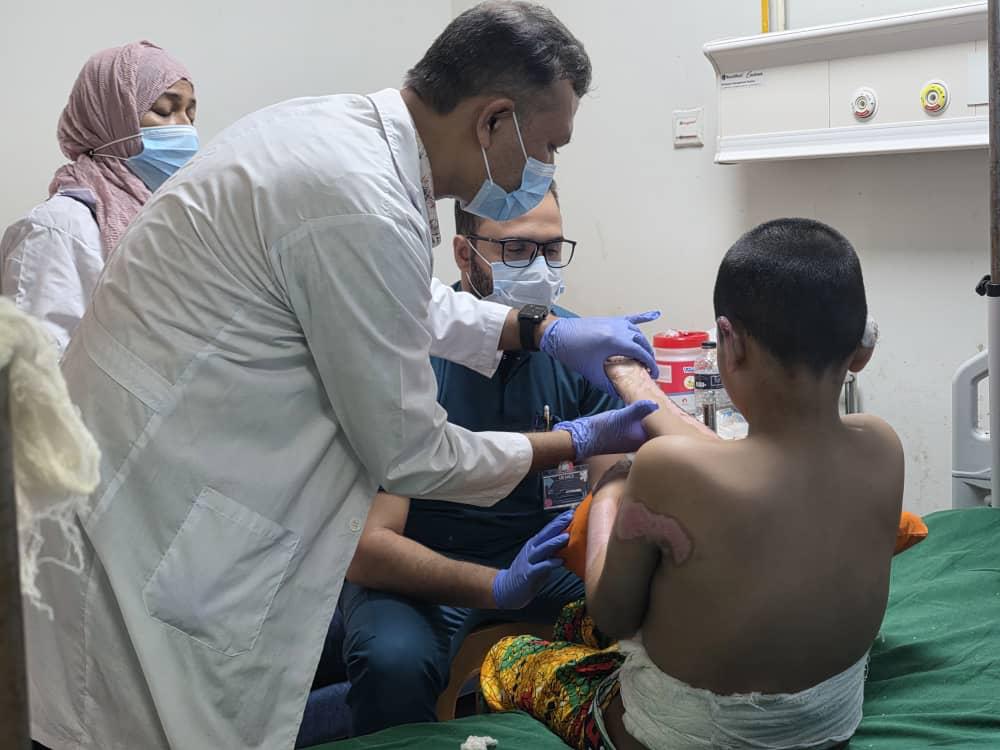Status: Completed response

Mauritania
October 2021: UK-Med sent a team of four doctors and nurses to Mauritania (officially called the Islamic Republic of Mauritania) in Northwest Africa.
UK-Med were responding to a call for assistance from the WHO and Mauritanian Ministry of Health (Ministère de la Santé de Mauritanie), who were concerned about their capacity to manage severe and critical COVID-19 cases and the increasing rates of infection in the country.
Mauritania is a country mainly located in the Sahara – with around 90% being desert. As the impact of climate change worsens, the country is experiencing worse droughts and that percentage of desert is increasing. The majority of the 4.4 million population live in the South, where there is moderately more rainfall so the land is less arid. Approximately 30% of the population live below the national poverty line.
The team of four had just returned from a three-month response in Djibouti, where they had been strengthening and increasing the capacity of health services to respond better and more effectively to the ongoing COVID-19 pandemic. They brought these same skills and experience to Mauritania as they supported and strengthened local health services there too.
As of 7th October 2021:
How we helped
Sources:
Latest news
-
UK EMT in Bangladesh: 5 questions answered about the response
20th August 2025 -
UK Emergency Medical Team ends 5-month deployment in Lebanon
20th March 2025 -
From Surgery to Rehabilitation – UK-Med’s response in Bangladesh
11th December 2024








